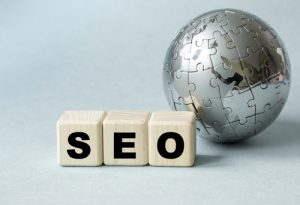Creating Strong SEO Content
As a digital marketing agency, one of the most common questions from businesses and content creators is, “Does content length or quality matter more for SEO?” With the constant evolution of search engine algorithms, balancing these factors to maximize search visibility and audience engagement is a top priority.
While longer content can give a webpage more space to cover a topic comprehensively, quality is the measure of relevance, accuracy, and value that truly connects with readers and search engines alike. In Google’s words, creating content that “provides a substantial, complete, or comprehensive description of the topic” ranks well, but this doesn’t mean longer is always better.
If you’re looking for SEO content services, contact Now Media Group today at (858) 333-8950.
Why Content Length Matters
Topical Depth and Coverage
Longer content often allows for a deeper exploration of a topic. When a webpage thoroughly covers a subject, search engines like Google see it as a more valuable resource, which can improve ranking potential. Search engines aim to serve users with comprehensive answers, so content that covers multiple facets of a topic has an advantage.
User Engagement and Dwell Time
Longer, well-structured content tends to keep readers on the page longer, boosting dwell time—a metric that suggests user satisfaction to search engines. Engaging content that holds readers’ attention can signal that the page meets user intent, which may contribute to higher rankings.
Keyword and Semantic Relevance
Long-form content provides more opportunities to naturally include keywords and their variations, helping content align with various search queries. This can broaden the reach of a page for different search terms, helping it rank for multiple keywords and phrases, which is particularly useful for competitive industries.
The Role of Quality in SEO
Meeting User Intent
Content that directly addresses the needs and interests of the target audience is more likely to be read and shared. When readers find value in the content, they’re more likely to engage with it, which can reduce bounce rates and improve SEO performance.
Building Authority and Trust
Content quality is crucial for building a site’s reputation and authority. Informative, accurate, and insightful content positions a brand as a thought leader, increasing the likelihood that it will earn backlinks from other reputable websites, and further boosting SEO.
Enhancing Readability and User Experience
Quality content is easy to read, logically structured, and free from grammatical errors. Providing a great user experience not only encourages readers to stay but can also lead to higher conversion rates, as users trust brands that communicate well and appear professional.
How Content-Length and Quality Interact in SEO
Content length and quality work best when they complement each other. While longer content has the potential to rank well, it should not come at the expense of quality. For digital marketing agencies, helping clients produce content that balances depth and engagement is key.
If long-form content becomes repetitive or off-topic, readers may lose interest, causing a spike in bounce rate. Instead, focus on delivering value at each stage of the content, ensuring that every section adds to the reader’s understanding of the topic. A 2,000-word article that’s insightful and well-structured will outperform a poorly written article of the same length.
Optimal Content Length for Different Content Types
The optimal content length can vary significantly depending on the content’s purpose and format. Here’s a breakdown of ideal word counts for common content types:
- Blog Posts and Articles: 1,500–2,500 Words — Blog posts that are 1,500–2,500 words tend to perform well in search rankings, as this length allows for comprehensive topic coverage without overwhelming the reader.
- Product or Service Pages: 500–1,000 Words — Product pages benefit from concise, informative content. A length of around 500–1,000 words is often sufficient to describe the product’s benefits, features, and use cases, along with FAQs.
- Landing Pages: 300–800 Words — Landing pages prioritize conversions, so their content is usually concise, persuasive, and directly aligned with user intent. These pages benefit from focusing on clarity over length, often staying between 300 and 800 words.
- Case Studies or White Papers: 3,000–5,000 Words — These in-depth documents explore a subject in detail, providing extensive insights and data. They require length to build a compelling narrative while maintaining a strong emphasis on quality and depth.
How to Prioritize Quality in Long-Form Content
Maintaining quality in long-form content is crucial for engaging readers and achieving SEO success. Here are a few tips to enhance quality while sustaining length:
- Start with Research: Understand the topic thoroughly to provide accurate and comprehensive information.
- Organize with Subheadings: Use clear and relevant subheadings to break up text and improve readability.
- Use Visuals and Examples: Visual aids, such as infographics and case studies, add value and illustrate complex ideas.
- Edit Ruthlessly: Trim any redundant or irrelevant sections, and ensure every sentence serves a purpose.
We Create Content That Ranks!
If you’re looking to enhance your SEO strategy with high-quality content, our agency is here to help. Reach out to us for a personalized SEO and content strategy tailored to your brand’s goals. Contact us today at (858) 333-8950.



